|
I learned a lesson from a good friend years ago. With few exceptions, she refused to buy "fresh" herbs at the grocery store. If she needed something that was not in her garden, she bought the plant whenever possible. I laughed about it the first time she told me, but it didn't take me long to follow suit.
My fall plantings have been meager this year. There are a lot of empty spaces in the garden and freshly raked soil waiting to be sown. But I was away for much of October, catching up in early November, and it's pretty much been raining for two weeks. Still, the garden has my back! I have just the right herbs for our Thanksgiving feast. I love rosemary and have it in a few places out there. Our sweet bay tree reaches for the sky. It is so easy to grow in our subtropical climate. Parsley flourishes. And while the sage and thyme aren't looking too good, I also have those in a few places, enough for turkey and stuffing. Or do you call it dressing? Anyway, I have the herbs! I'm not sure what other herbs I might incorporate into our meal, but I am happy that, as usual, the garden is providing. It would provide even more if I would just give it a little more time. I look forward to doing so. Seed packets are ready and waiting. But it will have to be after Thanksgiving. :) Wishing you a wonderful feast day and joy always, friends. Happy Thanksgiving!
0 Comments
Doesn't this look fresh? Lemon balm, Melissa officinalis, is an important plant in our herb garden. A gentle press to the leaves releases a fragrance that's green, citrusy, and deep. I love it, especially in tea (hot and cold). It's good for you, too, with a wide range of benefits.
The genus name surprised me. Melissa? Why? When I looked it up, I learned that the name comes from the classical Greek word melissa, which means "bee" and meli, which means "honey". Moreover, the Melissae were nymphs in Greek mythology as well as oracles. They were said to be able to take the form of bees. Lemon balm does attract bees and has been used by beekeepers for centuries. In ancient times, it was presumed that its power to attract also affected humans. It was believed to improve beauty, sexuality, and fertility. These benefits haven't been proven in modern medicine to any great extant. What has been found is that lemon balm is good for digestion and has a certain, lightly sedative effect. For centuries, lemon balm tea has been recommended to reduce headaches and help with menstrual cramps. The medieval physician Paracelsus called it "the elixir of life". The good news is that this herb, a member of the Lamiaceae or mint family, is very easy to grow. It's boisterous but not invasive and can be pulled up easily. It can be used in beverages and baking and of course in aromatherapy. Centuries ago, the nuns of the Abbey of St. Just in Paris created "Eau de Mélisse", otherwise known as Carmelite water. It was known for its fragrance as well as medicinal qualities. I was astounded to learn that the formula was purchased by the Boyer family in the 1800s and is still sold in French pharmacies today. In addition to lemon balm, it has lots of other natural ingredients such as chamomile, cinnamon, and rosemary, to name just a few. You can find the very interesting history of the tonic at the Boyer website. Tea time! Chives! Gotta love 'em. Pictured above are garlic chives, allium tuberosum. The Latin name for onion chives is allium schoenoprasum. Both have medicinal and culinary qualities and are great in the garden.
Members of the allium family, which includes onions, leeks, and scallions, chives add a more delicate garlic or onion flavor to foods. They are good raw or cooked. We add ours to salads, soups, and omelettes as a matter of course. Chives are high in vitamin K, which is good for the bones. They contain folate and choline, which aid memory and mood. They also have vitamins A and C as well as certain compounds known to help fight cancer. In other words, in addition to tasting good, they're good for your health. And I love having them in the garden. I've lined beds with them. Since they grow in clumps, they are good at holding soil together. Moreover, they deter aphids and moles and are deer resistant. They're evergreen and have pretty flowers. What more could you ask of one small plant? But there is more! They are easy to grow. They prefer sun, but will do just fine in partial shade. While they prefer slightly moist soil, they can withstand a dry spell. And they are economical. I am not what anyone would call thrifty where my garden is concerned -- although I admire the ability to be able to do that. But I've divided chives at bedding plant size -- to plant them in my garden -- with great results. And, of course, since I've grown them for years and years, I've divided large clumps plenty of times. Oh -- I almost forgot -- the flowers are edible, too! Lavender -- I love it. Not all lavenders can withstand the humid conditions of southeast Texas, but some varieties will do just fine given the right soil and aeration. Moreover, Texans seem to love the herb and have been tweaking cultivars that do better here.
But the one in the photo above, French Lavender, Lavandula dentata, is a classic. Native to the Mediterranean, it prefers light soil and to dry out a bit between waterings. Since ancient times, lavender has been considered a medicinal herb. Lavender oil has anti-bacterial properties and has been used to treat acne as well as burns, wounds, and insect bites In a tea, it can have a mild, sedative effect, aiding sleep, and it also aids digestion. It's a perfect after-dinner or bedtime tea. It can be used in both fresh and dried forms. Fresh mint and lavender flowers are a refreshing combination. It's used in cooking, too, and is one of the ingredients of Herbes de Provence. All parts of lavender are ingestible. And, of course, it's a favorite for potpourri, sachets, and dried arrangements. Personally, I love it best in the garden. As I've mentioned before, fragrance is very important to me. It's one of my favorite things about herbs. Rosemary -- Salvia Rosmarinus -- was moved into my favorite botanical genus just a few years ago. For a few hundred years, it was its own genus and the rosemary we know and love was Rosmarinus officinalis. While there had been debates through the years that it really did belong to the Salvia family, no one was willing to make the change. But in 2018, citing all sorts of scientific information, especially from DNA analysis, proponents for the move won out. For rosemary-lovers, it doesn't really matter. For saliva-lovers like myself, it just adds to the attraction. A Mediterranean herb beloved around the world, Salvia rosmarinus is a versatile herb. Renowned for both its fragrance and flavor, it only makes things better. Personally, I love it in the garden. Brushing up against it while weeding or sometimes simply passing close by, I am assailed by its lovely aroma. And of course, when cooking I add it to everything that I can. I just snip a couple of stems and stuff them inside poultry cavities, drop them into soups and stews, lay them atop fish... It adds unmistakable flavor to any dish and the house smells so good whenever rosemary is involved. It also makes a wonderful tea. It works as a digestive. A few days ago, I brewed a tea of rosemary, basil, and bay leaves. It might sound strange, but I wanted to experiment. I'm glad I did. It was a deliciously fragrant tea -- equally good hot or cold. And there are more uses for rosemary. It's an important ingredient in aromatherapy, appreciated for clearing the head. Its fragrance lends itself well to sachets, potpourri, and fire-starter bundles.
Culturally, rosemary has been an important garden plant since ancient times. Romans and Greeks cultivated it. For centuries it has been associated with the Virgin Mary. A close friend of mine from Croatia has told me that in her country, rosemary indicates welcome and is used in religious processions. It is because of her that I have one in a pot near our front door. It's easy to grow, by the way, simply requiring plenty of sun and no over-watering. While it doesn't like wet or even damp feet, it doesn't care about humidity. As a matter of fact, the name rosmarinus comes from the Latin words ros, meaning dew, and marinus, meaning sea. In other words, "sea-dew" or "dew of the sea", which surely indicates it can handle humidity. And have I mentioned that it smells really good? Monarda, also known as bee balm, horsemint, and wild bergamot, (among other names, depending on the variety and region) is a wonderful, useful, versatile herb. I have two varieties in my garden -- Monarda didyma (the red) and Monarda fistulosa (pink).
It's not a very demanding plant. While it does best with an average amount of water and sunlight, it will get by with less of both. In my garden, the Monarda fistulosa does get powdery mildew sometimes. In the wild, this variety is commonly found growing in dry, rocky conditions and the area we live in is steamy in summer. But it blooms all the same, usually from spring through fall. In fact, Monarda is very hardy, being a member of the mint (lamiaceae) family. Unlike mints, it's not invasive. But if it's happy, it can grow into a nice, big clump that you might want to divide every few years. It's a pretty plant and I'm not the only one who likes it. Bee balm holds enormous attraction for pollinators, hence its nickname. For this alone, it's worth its space in the garden. Native to North America, it's loved not only by bees, but also butterflies and hummingbirds. I also enjoy it in tea. It helps settle the stomach and soothe the nerves. To me, its distinct flavor is between grassy and citrusy. Is "herbally" a word? Anyway, I make a personal blend of spearmint, lemon balm, and bee balm that is refreshing hot or cold. Whether you enjoy it in a cup of tea, appreciate a carefree plant in your garden, or enjoy watching hummers hover and bees at work or all of the above, Monarda is a wonderful addition to any garden. |
Our GardenFor years, my husband and I worked at creating a series of gardens on our four-acre lot in a rural, Texas subdivision west of Houston. I have to say, it was a fantastic experience. Now, I have a pocket garden on a golf course. Archives
June 2024
Categories
All
NewsletterFrom me to you with a smile. Thank you!You have successfully joined our subscriber list. |
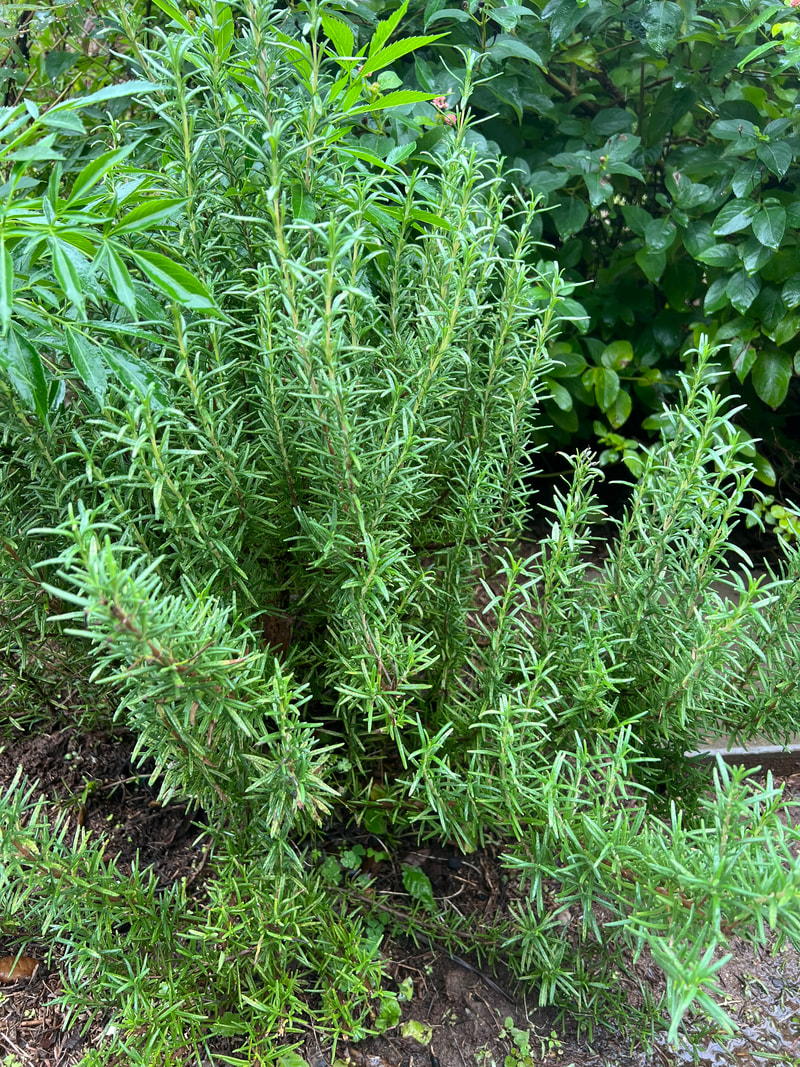
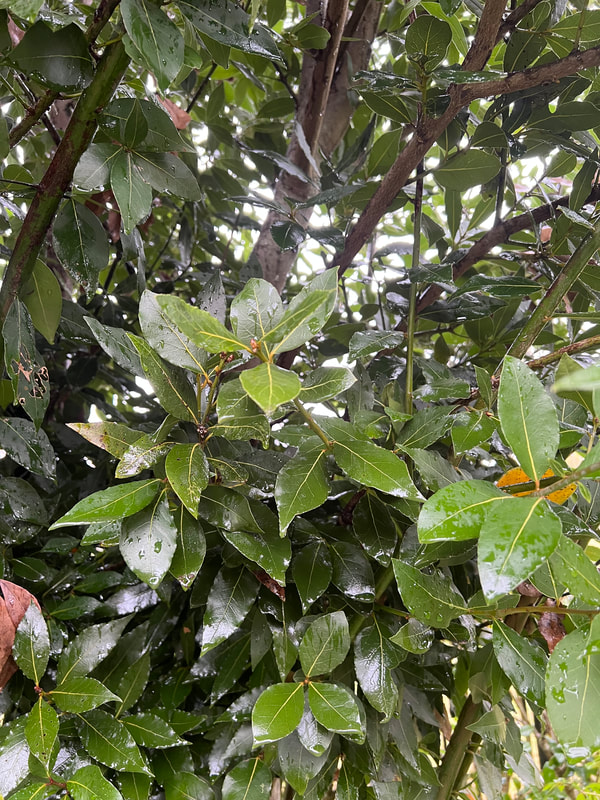
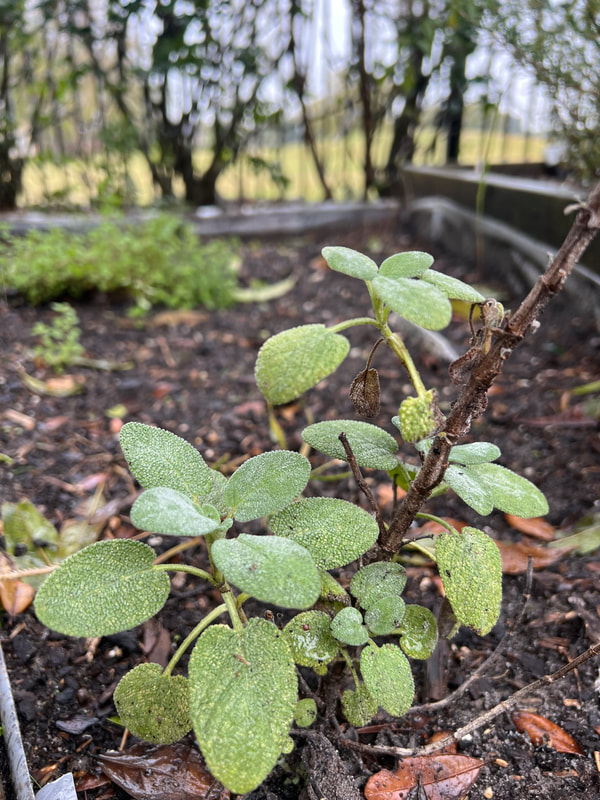
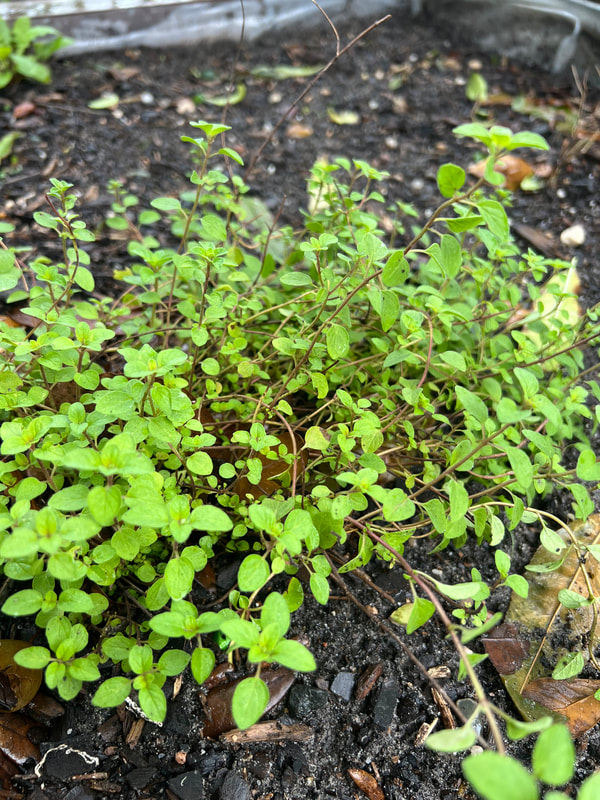
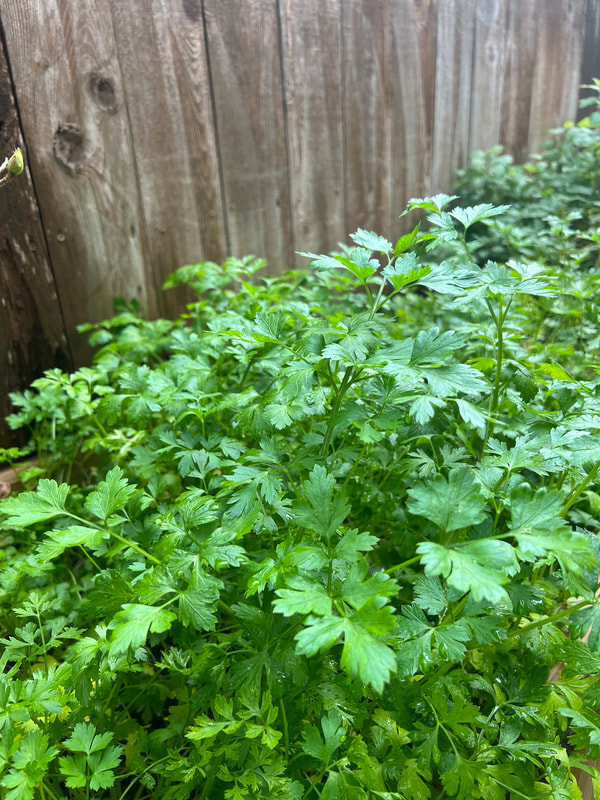
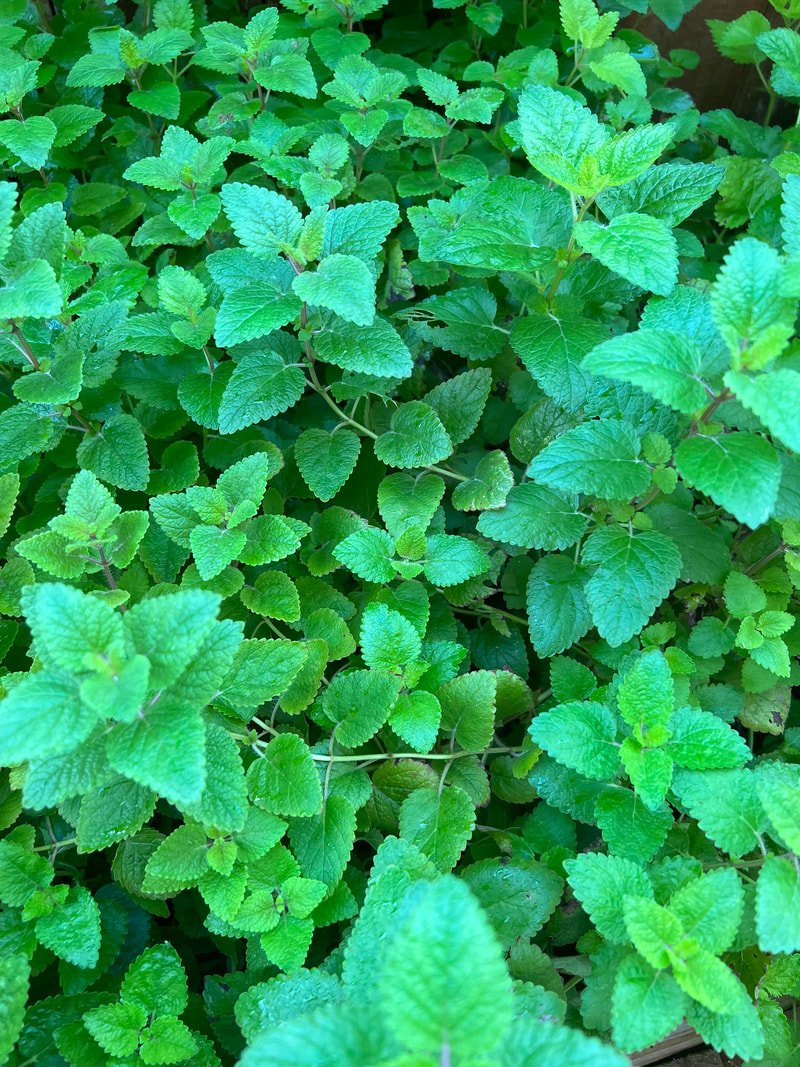
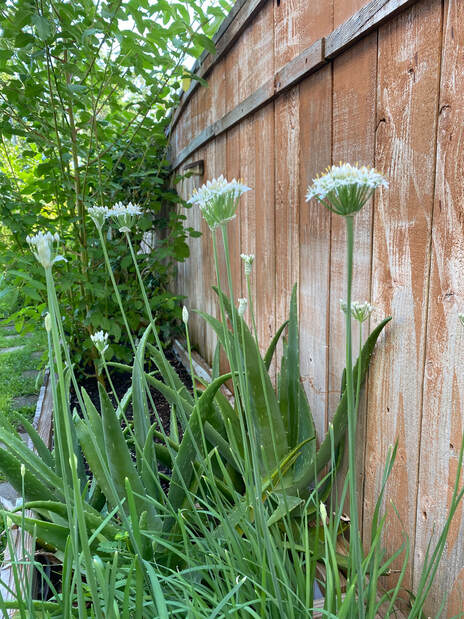
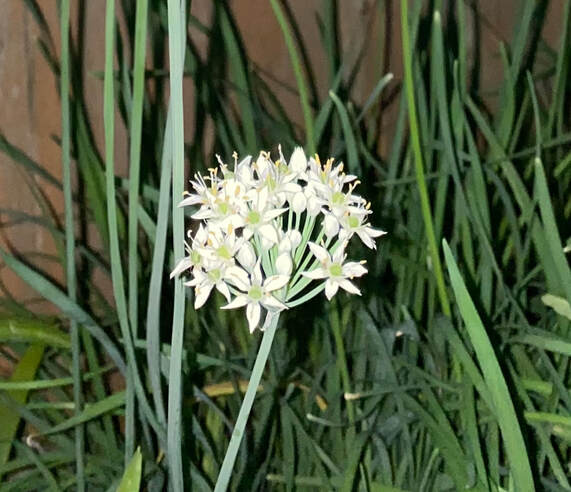
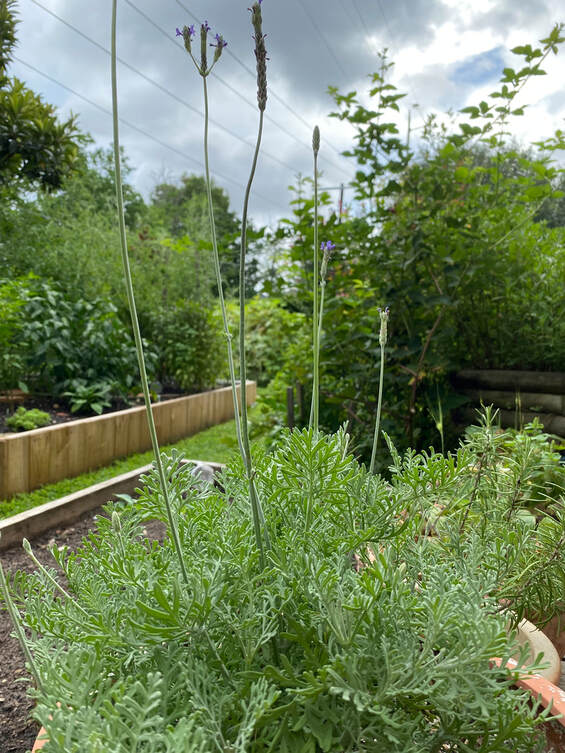
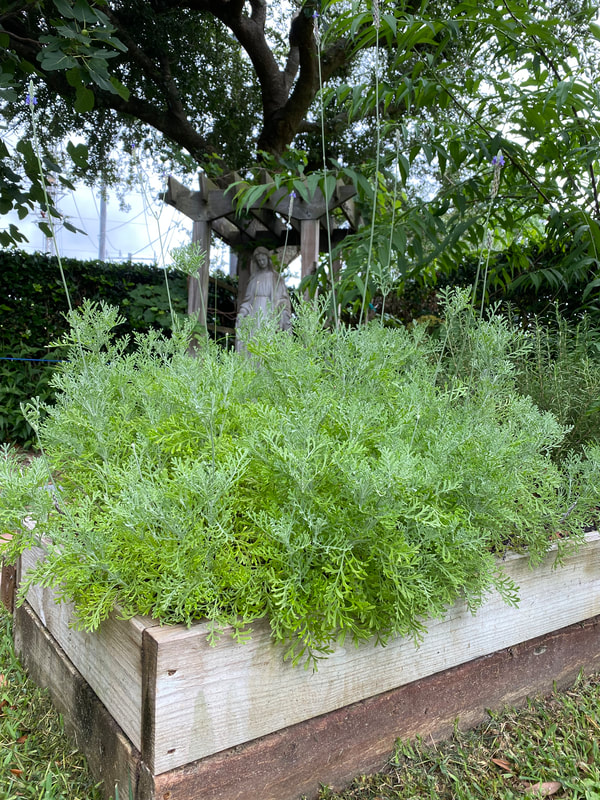
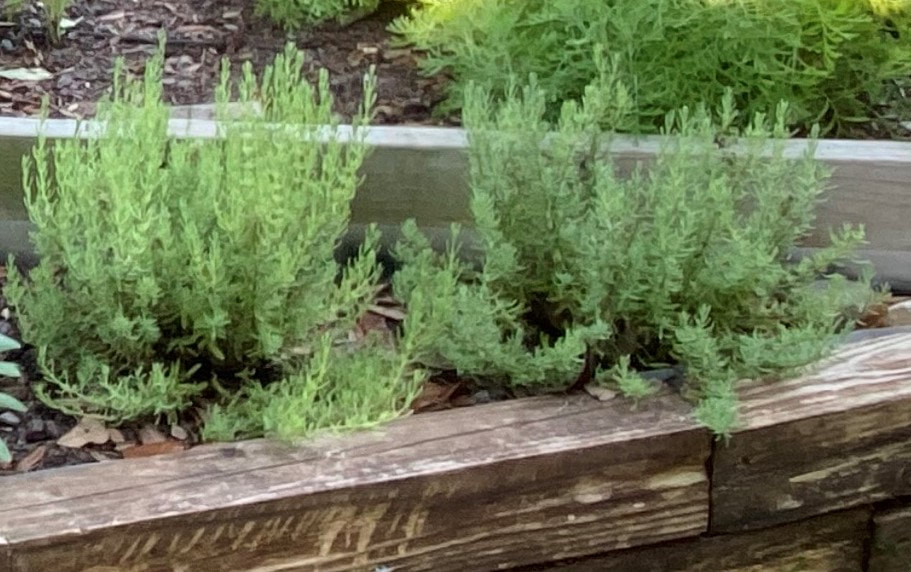
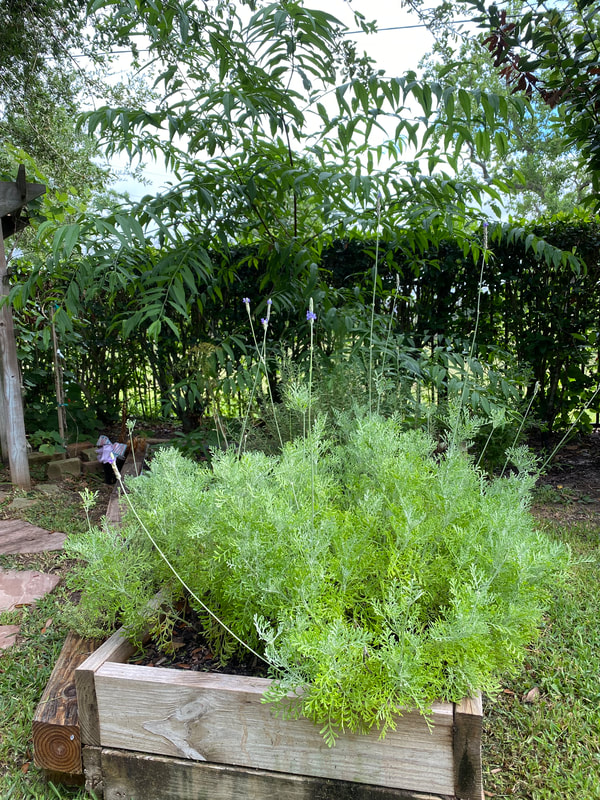
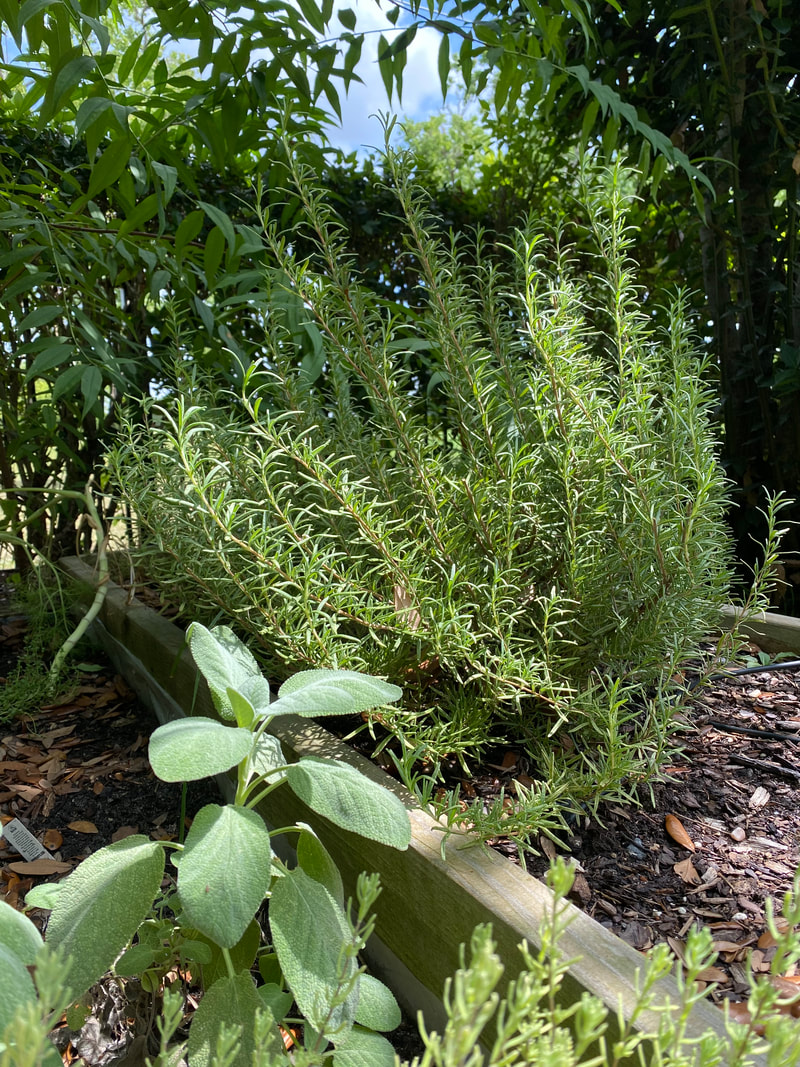
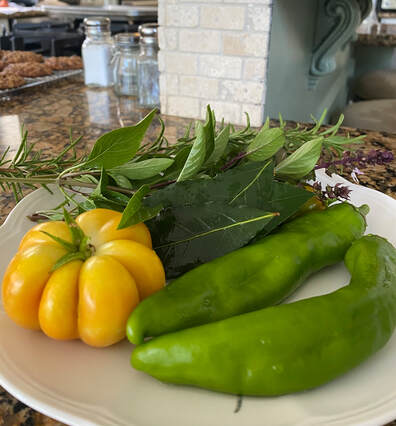
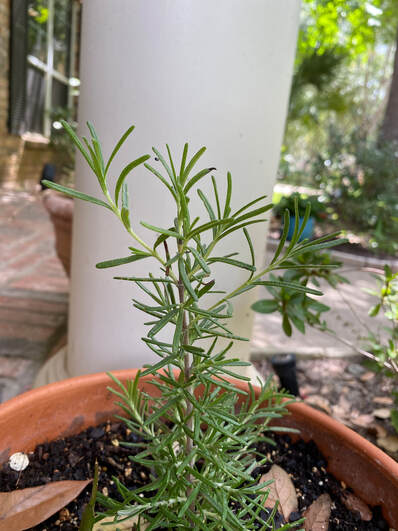
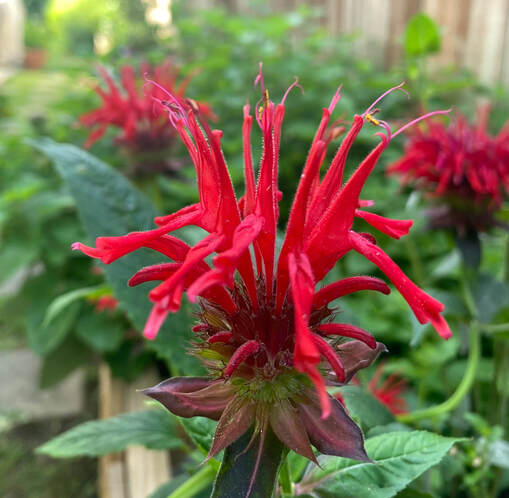
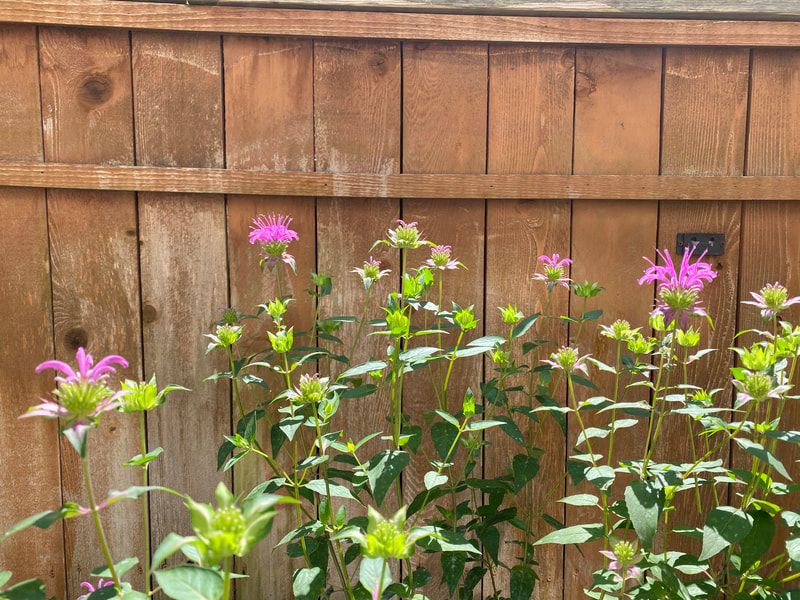
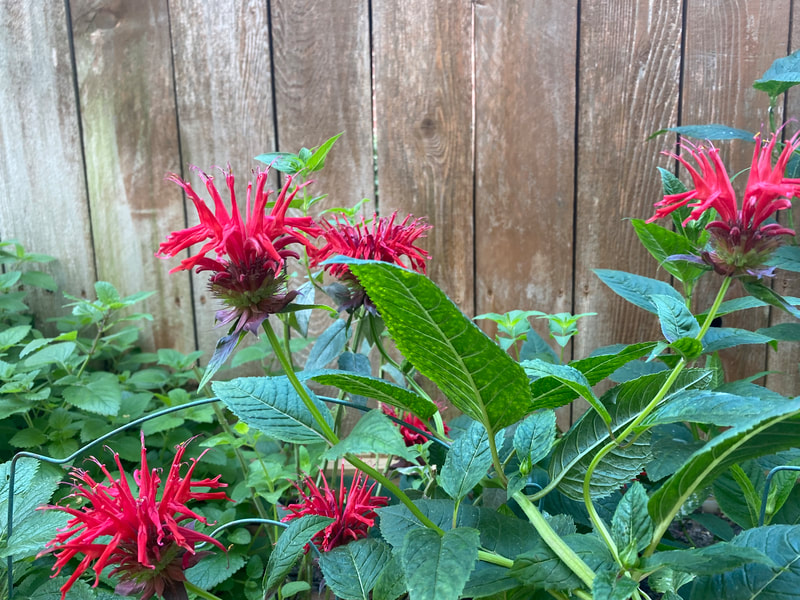
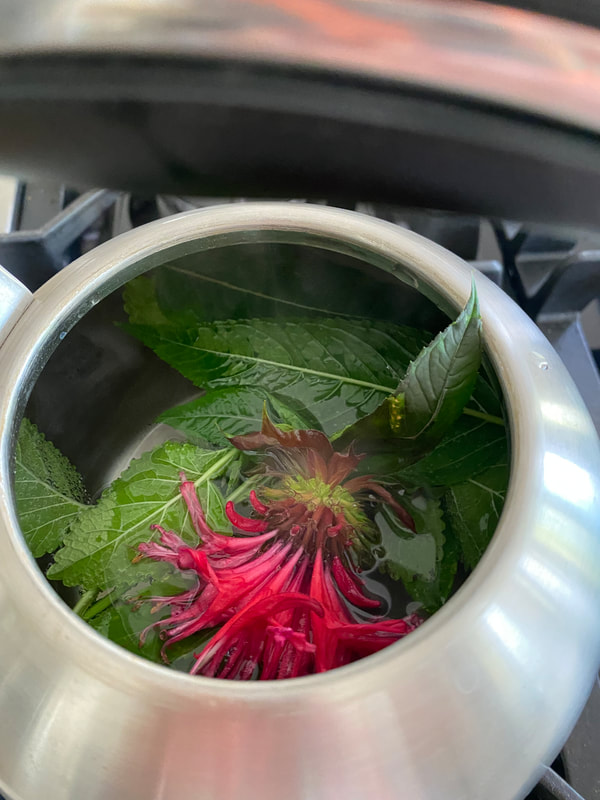
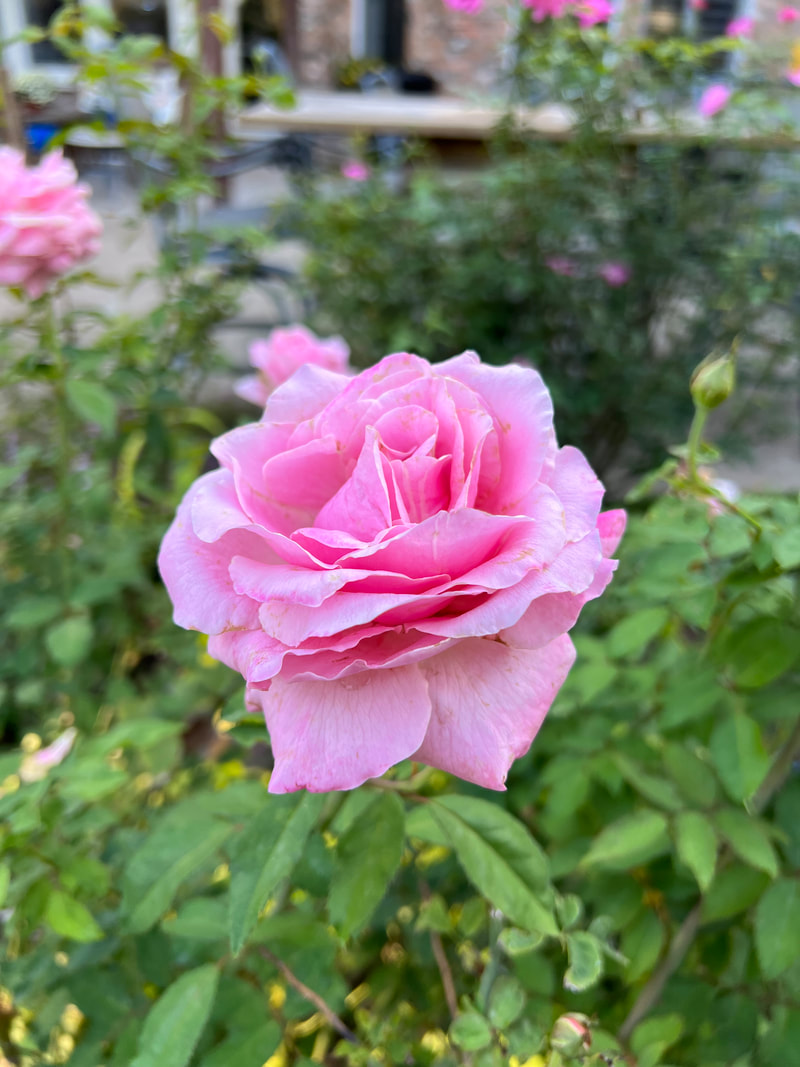
 RSS Feed
RSS Feed